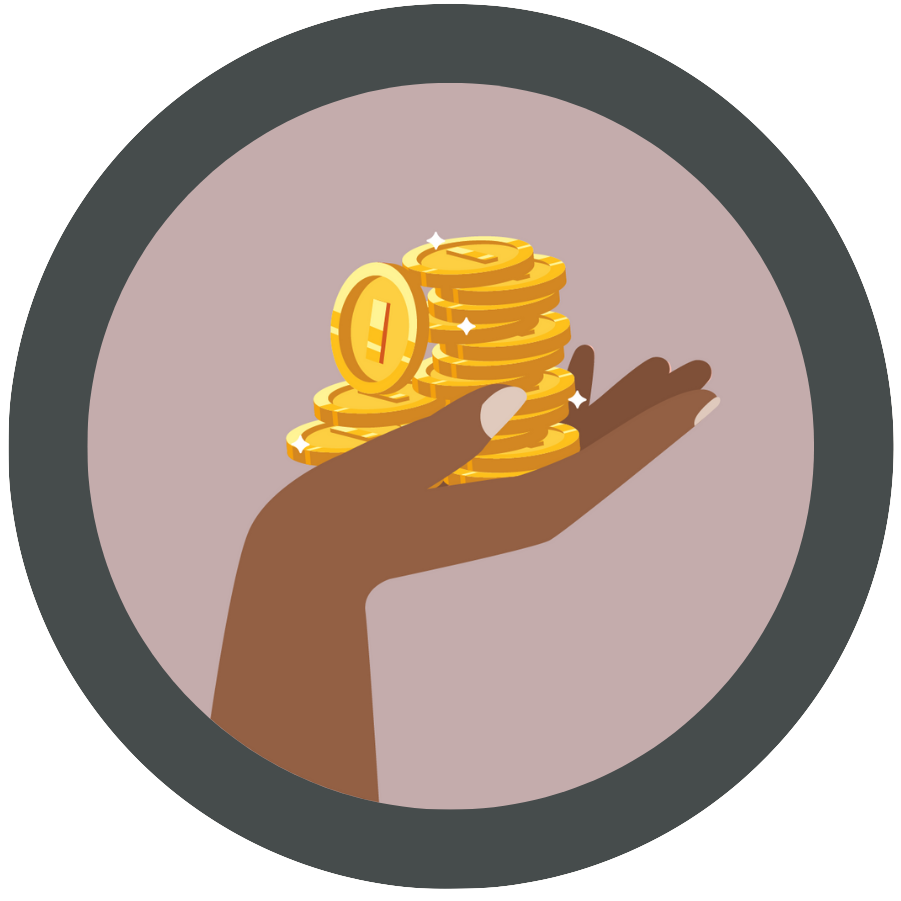You CAN do this. Achieving wellness in each part of you takes more time, planning and attention than you might expect, but it doesn’t have to be overwhelming.Financial Wellness
Financial wellness is knowing what you have and what you need to live the life that you want at every stage of your life. Financial wellness is feeling good about your financial state. Your money and your mood are good when your financial wellness is intact.
Financial Wellness encompasses…
Our financial wellness includes everything we do, think and feel about how we make, spend, save, invest, donate, give, and borrow our money. It also includes how we purchase, sell and manage our assets. We learn financial habits both taught and inferred from the time we are children. Our beliefs about our money, how we handle it, and how we make it are learned often at a young age. Lots of people come from families that don't really discuss money, and so end up making their own financial values, sometimes without sound evidence or experience underneath.
Whether we are doing well financially or need some improvement, our relationship with our finances affects our total wellness.
When you don’t take care of your financial wellness…
When your financial wellness falters it can make you feel insecure and stressed out. When this happens, your eating habits may change, you may not sleep well, you may find yourself moody or cranky, or you may start to make poor emotional decisions about your finances or other aspects of your overall wellness. You may make purchases that make you feel good but that you then feel guilty about afterward. When bills like childcare, rent, mortgages, car payments, insurance payments, or health care premiums are due, especially if you're not sure how you are going to pay them, it can leave you worried or stressed. Even when your bills are under control, planning for current and future expenses like school tuition or occupational training, transportation, social events, retirement or buying a home may cause feelings of insecurity or feel so overwhelming you push them aside and try not to think about them.
Think about the last time you bought something you really wanted, how did you feel? I'm sure it affected your mood in some way. Your financial worries and insecurities may not be obvious to the outside world, but everyone I talk to has one or more concerns about their financial wellness that require improvement. (I can’t tell you how many people I talk to who are actually financially well off but have still not achieved holistic financial wellness.)
You can do this. PsycleOn can help.
Money, what you do with it, and how you feel about it is a big deal! It’s likely that you don’t realize how money affects you outside of the way you see it tangibly. The simple truth is, making more money may help but it isn’t a strategy, and by itself it likely won’t change ingrained beliefs and habits.
Being financially well and having a strategy for your finances is a vital part of your being, and managing financial stressors requires a strategy. The more comfortable you are talking about money and finances, and the more knowledgeable you are about tactics for managing them and your potential stressors about them, the better. Look for opportunities to:
Consider your feelings about money
Think about and write down concrete long-term goals
Attend a webinar about a financial topic you want to learn more about
Read articles by reputable financial planners about retirement and estate planning
Engage more often in casual conversations with family, friends, or professionals that include money or money management
Track your spending for a month and see how it aligns with your priorities
You’ve got this, and we’re here to help! Increase your knowledge and design a strategy to ensure your financial wellness, then make a plan to put it in action.
Your wellness is too important to leave it to chance!

